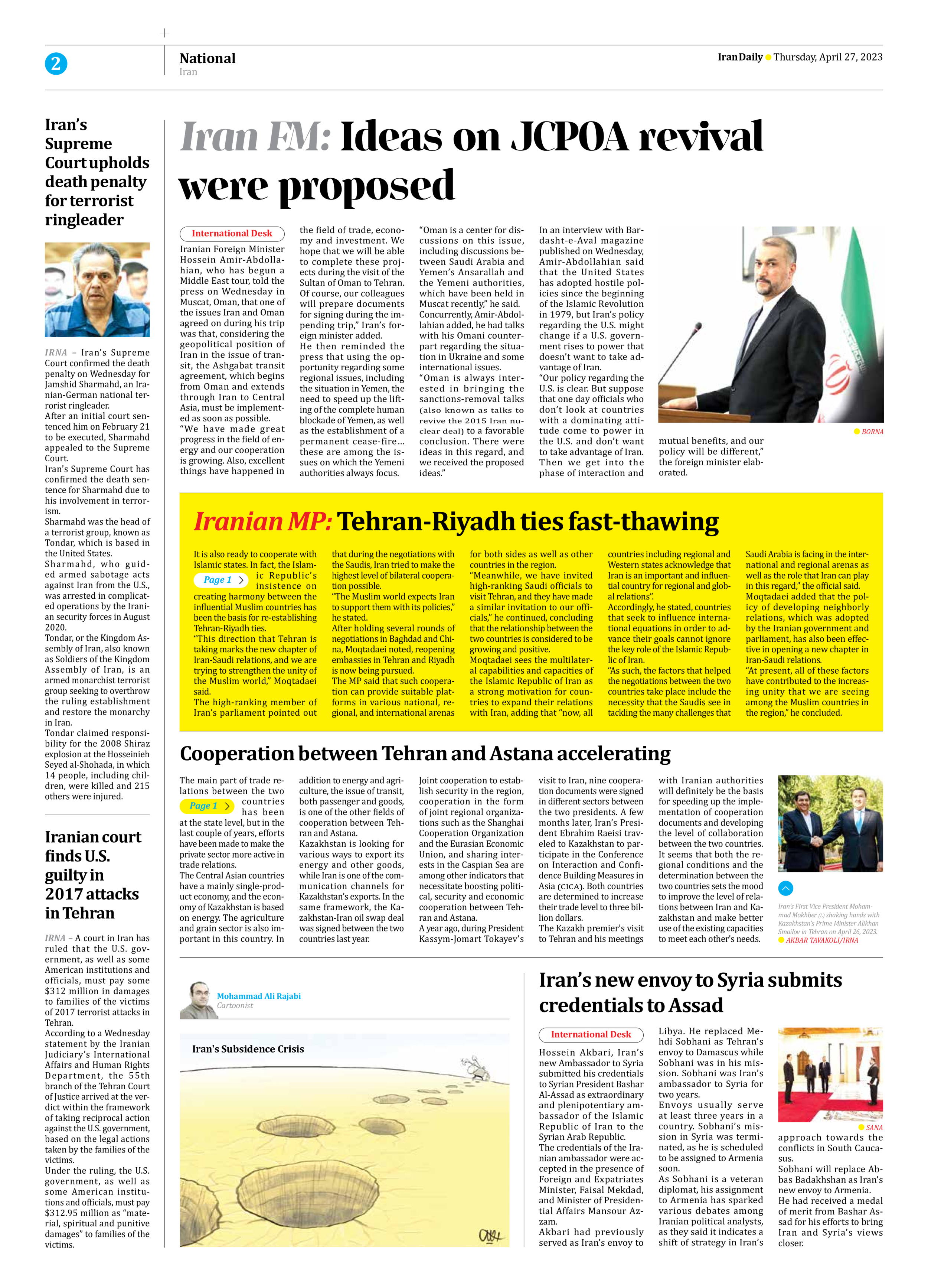
Cooperation between Tehran and Astana accelerating
Page 1
The main part of trade relations between the two countries has been at the state level, but in the last couple of years, efforts have been made to make the private sector more active in trade relations.
The Central Asian countries have a mainly single-product economy, and the economy of Kazakhstan is based on energy. The agriculture and grain sector is also important in this country. In addition to energy and agriculture, the issue of transit, both passenger and goods, is one of the other fields of cooperation between Tehran and Astana.
Kazakhstan is looking for various ways to export its energy and other goods, while Iran is one of the communication channels for Kazakhstan’s exports. In the same framework, the Kazakhstan-Iran oil swap deal was signed between the two countries last year.
Joint cooperation to establish security in the region, cooperation in the form of joint regional organizations such as the Shanghai Cooperation Organization and the Eurasian Economic Union, and sharing interests in the Caspian Sea are among other indicators that necessitate boosting political, security and economic cooperation between Tehran and Astana.
A year ago, during President Kassym-Jomart Tokayev’s visit to Iran, nine cooperation documents were signed in different sectors between the two presidents. A few months later, Iran’s President Ebrahim Raeisi traveled to Kazakhstan to participate in the Conference on Interaction and Confidence Building Measures in Asia (CICA). Both countries are determined to increase their trade level to three billion dollars.
The Kazakh premier’s visit to Tehran and his meetings with Iranian authorities will definitely be the basis for speeding up the implementation of cooperation documents and developing the level of collaboration between the two countries. It seems that both the regional conditions and the determination between the two countries sets the mood to improve the level of relations between Iran and Kazakhstan and make better use of the existing capacities to meet each other’s needs.







